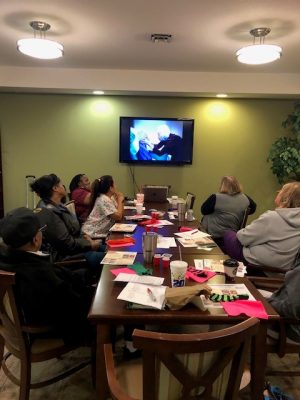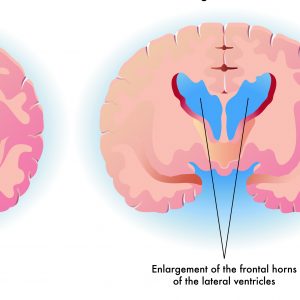
The AGE-u-cate Training Institute received encouraging feedback from a client, and it is worthy of a share. A home health agency that utilizes Dementia Live for staff training reported that their employee turnover is decreasing. Furthermore, the turnover correlates with their implementation of Dementia Live, a simulation training experience of what it might be like to have dementia.
This news made us curious about the connection between specialized dementia training and employee turnover.
PHI is an organization with a mission to promote quality care through quality jobs. PHI identifies staffing in long term care a national crisis and reports conservative estimates of turnover across the long-term care sector ranging from 45 to at least 66 percent. In addition, one in four nursing assistants and one in five home health aides report that they are actively looking for another job.
The Dementia Care Foundation (DCF), based in Darwin, MN, studied staff retention and turnover in those working with persons with dementia. The research premise is based on findings by Brodaty et al., 2003 that turnover is particularly challenging in dementia care.
Effectiveness of Specialized Training
Researchers with the DCF also cited findings from Chrzescijanksi, et al., 2007; Coogle et al., 2007 that specialized training has been shown to reduce staff turnover while simultaneously improving the quality of care.
Relationships with co-workers was the most significant factor contributing to employment exodus. However, findings also reveal a connection in turnover and the lack of specialized training.
The DCF also uncovered a relationship between dissatisfaction with training about managing dementia behaviors and how likely respondents were to leave their job within the year.
Specialized is the keyword. Training for staff working with persons with dementia needs to heighten understanding and empathy. In addition, it should equip staff with knowledge and skills to respond to and reduce difficult behavioral expressions.
Something else to ponder is if and how employee relationships improve with specialized dementia training.
The training philosophy behind Dementia Live is that it is hard to care for someone that you don’t understand. Lack of understanding leads to stress, burnout, and ultimately turnover.
In conclusion, consider investing in specialized dementia training as a strategy to reduce employee turnover. In addition, the impact on employee relationships following specialized training would also be an interesting aspect to explore.
 Julie has worked in Aging Services for over 30 years and has been a Licensed Nursing Home Administrator since 1990. She is a Certified Master Trainer with the AGE-u-cate Training Institute. Through her company Enlighten Eldercare, Julie provides training and educational programs on elder caregiving for family and professional caregivers. She is an instructor and the Interim Director of Gerontology at Northern Illinois University and lives in the Chicago Northwest Suburb of Mount Prospect, IL.
Julie has worked in Aging Services for over 30 years and has been a Licensed Nursing Home Administrator since 1990. She is a Certified Master Trainer with the AGE-u-cate Training Institute. Through her company Enlighten Eldercare, Julie provides training and educational programs on elder caregiving for family and professional caregivers. She is an instructor and the Interim Director of Gerontology at Northern Illinois University and lives in the Chicago Northwest Suburb of Mount Prospect, IL.

 May is Huntington’s Disease (HD) Awareness Month, sponsored by the
May is Huntington’s Disease (HD) Awareness Month, sponsored by the  From the conversations I have every single day with our partners, I’m guessing most of you would give yourselves an adequate score at best. And perhaps this is on a good day. “Empowering Your Caregivers” – some of you might just be asking what exactly I mean by empowering caregivers.
From the conversations I have every single day with our partners, I’m guessing most of you would give yourselves an adequate score at best. And perhaps this is on a good day. “Empowering Your Caregivers” – some of you might just be asking what exactly I mean by empowering caregivers.